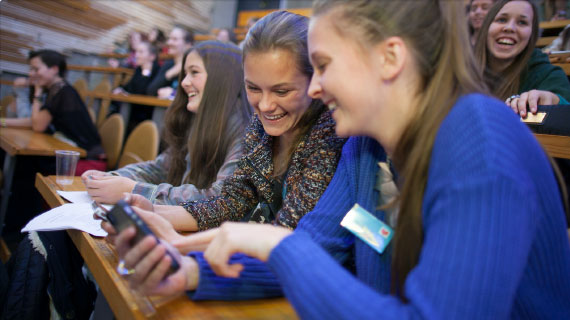1. Hybrid is happening, and company culture is on the line – Dan Schawbel, Workplace Intelligence
Hybrid is happening: according to a recent report from Kahoot! and Workplace Intelligence, 77% of employees want to work remotely at least part of the time (findings backed up by data from both Gallup and McKinsey). This won’t just mean an increased dependence on collaborative tech, but a new kind of collaborative tools that contribute to company culture by both driving emotional connection, and including all employees no matter where they are.
Contact sales to discuss 360 Spirit, our best solution for strengthening hybrid culture
2. New: building a culture of learning with Kahoot! Courses – Osama Hanif, Director of Product at Kahoot!
Bringing people together regardless of location is going to be one of the primary challenges to company culture moving forward. Good news, then, from Osama and his team who announced the launch of Kahoot! 360 Courses, which enables teams to collaborate on the creation and delivery of live and asynchronous training to in person and remote learners. Courses can comprise documents, videos as well as kahoots and propel Kahoot! from from single session to a continuous learning experience.
There was more great news: attendees were also able to try out our new Kahoot!’s new Team Mode, one of the most requested features from our business users. The new mode enables hosts to run advanced team-style kahoot sessions, where individual users join and play as a part of a multi-player team, rather than playing as an individual participant.
3. Unintentional bias towards in-person employees is the biggest challenge of hybrid – Jill E. Duffy, journalist and author of The Everything Guide to Remote Work
As journalist and author Jill Duffy pointed out, some traditional biases towards remote work remain ingrained across industries and geographies, with some remote workers being passed over for opportunities. Leveling that playing field is going to be a priority for corporate culture. To build a successful hybrid culture employers need to acknowledge anxieties, be transparent, ask for feedback and remain open to making adjustments. Technology also has a vital role to play, according to Kahoot!’s recent survey, with 77% of employees at companies with best-in-class tech agreeing that remote workers were treated fairly compared to office workers.
4. Good company culture keeps people healthy, thriving and connected – Audrey Camp, Director of Internal Communication and Culture at Cognite
One highlight of the summit was Audrey Camp’s hugely motivating retelling of Cognite’s unique efforts to maintain their special company culture as the pandemic began to bite. She and her team had to think on their feet and organized a daily radio show, company-wide weekly “Friyay” video conferences and managed to drive high-quality engagement amongst employees despite the dramatic pivot to remote work.
What they experienced was that the quality of connections in the company improved as employees managed to connect even more with colleagues they might not have interacted with while working in the office every day.
5. In the hybrid age, everyone can learn lessons from organizations with frontline workers – Walter Zepeda, COO of Actimo America
If we want insight into operating a truly hybrid culture, organizations with frontline workers may well be the best place to start. As Actimo’s COO, Walter Zepeda, pointed out, these workforces have been innovating around remote and hybrid work long before pandemics made it essential.
Perhaps the most telling insight was how these frontline-focussed teams manage to use remote social initiatives not just to keep workers connected, but to actually increase their sense of belonging. These insights are gold dust for those of culture custodians at companies where colleagues may only physically connect a handful of times per year.
Read more about Actimo’s solutions and book a demo
Register to watch the Kahoot! WorkSummit sessions on-demand for free today.






